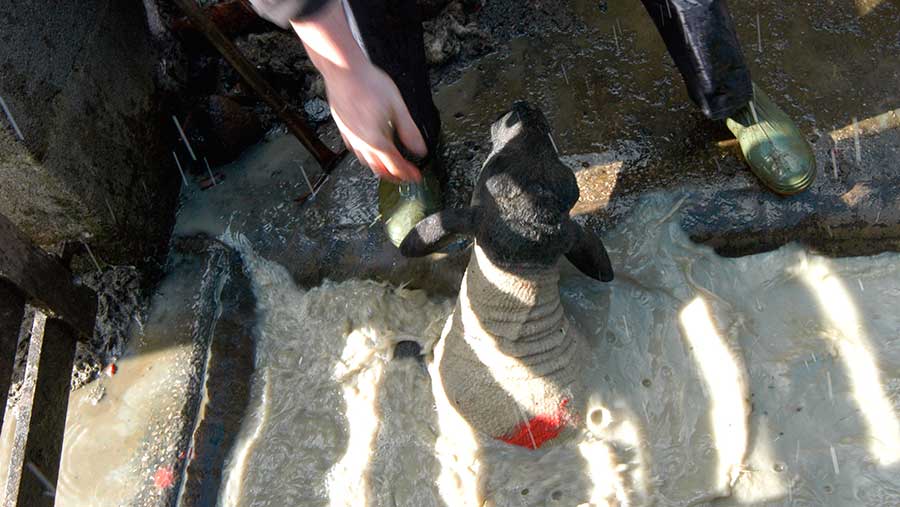‘Disappointing’ findings from OP sheep dip review
 © Photofusion/REX/Shutterstock
© Photofusion/REX/Shutterstock Civil servants have failed to uncover evidence that fears for human health prompted the government to end compulsory sheep dipping with organophosphates (OPs).
Defra officials spent six months trawling through hundreds of documents dating back four decades to confirm the rationale for the ending of compulsory sheep dipping in the 1990s.
They also liaised with the Department of Health and the Department for Work and Pensions.
No evidence has been found that fears over human health played any part in the decision to end compulsory dipping George Eustice, Defra minister
The review was agreed by Defra minister George Eustice following a meeting last autumn with members of the Sheep Dip Sufferers Support Group, which is campaigning for better diagnosis and treatment for all those affected by organophosphates used in agriculture.
See also: Minister pledges to re-examine OP sheep dip files
The group claims more than 20,000 farmers suffered ill health due to OPs when dipping was compulsory.
However, in a letter summarising the review findings, Mr Eustice said: “No evidence has been found that fears over human health played any part in the decision to end compulsory dipping.”
Mr Eustice said it was also worth noting that the government’s independent Committee on Toxicity had researched organophosphates extensively and found “no evidence that low-level exposure causes long-term health effects”.
He wrote: “After looking through hundreds of records stretching back to the 1980s, we have found documented evidence that compulsory dipping was ended because eradication of the disease had become unrealistic and individual outbreaks could be dealt with on a case-by-case basis.”
Asked how farmers could get access to lost medical records, Mr Eustice said the records were “unfortunately lost” before the formation of NHS England (London) in 2012 and the government had no way of identifying what had happened to them.
Support group co-ordinator and Lancashire farmer Tom Rigby described Mr Eustice’s reply as “extremely disappointing”. Sheep dip sufferers would be “upset and angry” at the suggestion there was no evidence that low-level exposure to OPs caused long-term health effects.
“Some died, some regained health but many are still somewhere in-between,” said Mr Rigby. The absence of official recognition for the cause of their illness added insult to injury – and they could not get the healthcare they needed without correct diagnosis, he said.
